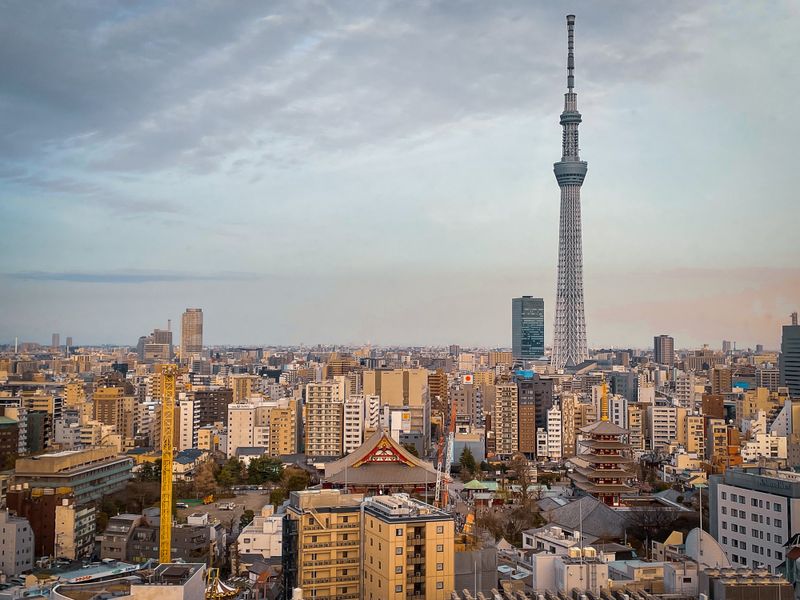Jul 18, 2022
Tokyo getting cheaper, takes drop in cost of living city ranking

Tokyo dropped to ninth place in a ranking of the most expensive cities in the world for foreign workers, down from fourth the previous year, according to an annual cost of living survey.
Tokyo was one of four Japanese cities to feature in Mercer’s 2022 Cost of Living City Ranking published in late June. Out of 227 cities across the world ranked by the survey, the Japanese capital was found to be the ninth most expensive city in the world followed by Osaka (37), Yokohama (50) and Nagoya (51). A weaker Japanese yen is thought to be behind Tokyo's drop in rankings.
The top 10 most expensive cities for expat workers in 2022, according to Mercer, are as follows:
Hong Kong, Zurich, Geneva, Basel, Bern, Tel Aviv, New York City, Singapore, Tokyo, and Beijing.
At the other end of the scale, the least expensive cities for expat workers are: Algiers, Almaty, Tunis, Tashkent, Istanbul, Karachi, Islamabad, Dushanbe, Bishkek, and Ankara.
Mercer’s annual Cost of Living City Ranking aims to serve as a reference for multinational organizations as they try to put together appropriate compensation packages for employees based around the globe.
The rankings are derived from research data covering over 400 cities around the globe, according to Mercer. Prices of more than 200 goods and services are evaluated as part of the research, from categories that include housing, transportation, and recreation and entertainment, through to alcohol and tobacco.
Prices evaluated for the latest cost of living city ranking have been shaped in no small part by the coronavirus pandemic, Russia’s invasion of Ukraine, high inflation and unstable currencies. Against this backdrop, the challenge facing employers in assessing and managing the financial wellbeing of employees based overseas “may be particularly complex,” according to Mercer.
“The volatility triggered by COVID-19 and further worsened by the crisis in Ukraine, has fuelled global economic and political uncertainty," Yvonne Traber, Partner at Mercer and Global Head of Mobility said.
“This uncertainty, coupled with significant rising inflation in most of the countries around the world, has international assignees concerned about their purchasing power and socio-economic stability.”
While a weaker Japanese yen might make for favorable exchange rates and a potential short-term boost in purchasing power for some prospective Japan-based workers, the prospect of a salary pegged to the yen in its current state might not be viewed so favorably.
Cost of living and purchasing power, however, are just two factors at play in attempts by employers to recruit talented workers for overseas markets. Tokyo, then, fairs well when it comes to quality of living.
Based on factors that include safety, eco-friendliness, education standards, governance and taxation, Tokyo ranks relatively high, particularly among cities in Asia, in terms of quality of living, according to Mercer’s Quality of Living Index. (Vancouver, Toronto, Stockholm, Lisbon and Frankfurt are among those cities with the lowest cost of living and highest quality of living.)
Regardless of the cost and quality of living in any of its cities though, Japan’s cautious re-opening of its borders to non-resident foreigners as virus fears ease may make such considerations almost irrelevant if the barriers to entry remain too formidable.
There are calls, however, particularly among Japan’s business leaders, for a further easing of border restrictions and improvements to the country’s ability to take in workers from overseas, particularly in the face of labor shortages.
“The question of accepting foreign workers should not be discussed only from the viewpoint of business resources; the perspective of taking various steps to create the environment for introducing these workers must also be included,” Masakazu Tokura, Chairman of the Japan Business Federation (Keidanren) told reporters during a press conference in June.
Entry to Japan for non-tourism purposes resumed under certain conditions from March this year, but a daily entry cap remains in place. While visits for tourism resumed in June they remain limited to strictly controlled group tours.
The number of visitors to Japan in May was 147,000, down 94.7 percent compared to the same month in 2019 before the impact of the pandemic, according to data published by the Japan National Tourism Organization.
In the same month, and despite the comparative reduction in visitor numbers, Japan emerged top of the World Economic Forum’s Travel & Tourism Development Index for 2021.
Cost of living viewed within Japan
On July 6, the Bank of Japan (BOJ) released the results of its 90th Opinion Survey on the General Public's Views and Behavior. Conducted since 1993, the survey is aimed at gathering an understanding the concerns of the general public in regards to the policy and operations of the BOJ.
The results of the latest survey come as the BOJ continues to implement monetary easing measures against a background of surging prices for food and other daily necessities in Japan.
According to the survey, only 3.7 percent of respondents said the financial circumstances of their household were better off than a year ago. 43.2 percent said their circumstances have become worse off, while 52.3 percent said it was difficult to say.
Among those respondents who said their household circumstances had become worse off, a rise in prices was cited by 78.9 percent of respondents as a reason behind this, while a decrease in salary and business income was cited by 49.7 percent of respondents.
Related:
Oh to be average! Household savings in Japan hit highest average in years
Okozukai “pocket money” down among workers in Japan in 2022, survey
How much I SPEND A DAY in TOKYO | Cost of living in Japan:



0 Comments